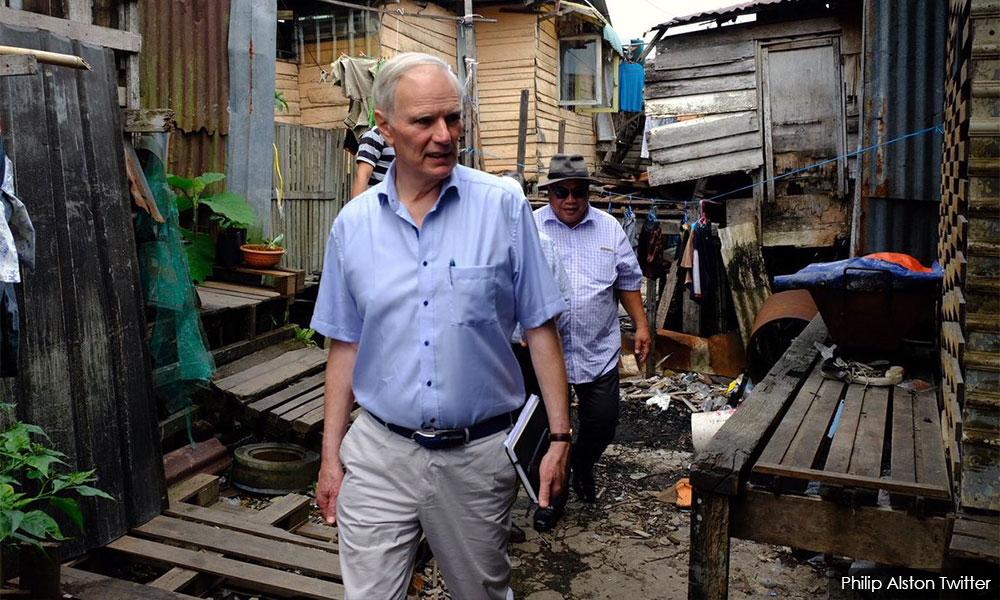MP SPEAKS | Malaysia is disappointed by the remarks made by the Special Rapporteur on Extreme Poverty and Human Rights, Professor Philip Alston, in a press release on Aug 23, 2019 regarding his preliminary observation on poverty in Malaysia.
We stand by our absolute poverty rate, which is currently recorded at 0.4 percent of total households in 2016 or 24,700 households.
This poverty rate is derived from internationally-accepted standards based on the Canberra Group Handbook on Household Income Statistics, Second Edition (2011), which is published by the United Nations.
The Poverty Line Income (PLI) used to derive this poverty incidence is currently set at RM980 at national level and calculated based on the basic requirements for a household to live healthily and actively, which is more than the PLI targeted in the first Sustainable Development Goal at US$1.25 per day.
This PLI is also higher for Sabah at RM1,180 and Sarawak at RM1,020 to take into account additional costs, such as transportation.
However at implementation level, especially when disbursing assistance, a household’s PLI takes into account its location, household size and other demographic factors. This may result in a higher household PLI than the national PLI.
Hence, assistance is tailor-made according to the needs of the recipients, based on the profiling through the eKasih system, which is an innovative initiative by the government to identify the right target group.
As such, the assertion made by Alston that there is “a statistical sleight of hand that has nefarious consequences” is wholly unacceptable and irresponsible.

While the government appreciates the effort by the special rapporteur in raising awareness on issues of poverty, certain comments are baseless and uncalled for.
For instance, the assertion that a “sizable part of Malaysia’s population struggles to get by with tenuous access to food, shelter, education and healthcare...” is both misconceived and erroneous, clearly lacking empirical evidence and rigorous scientific procedures.
With regard to the assertion that Malaysians have “...limited ability to exercise civil and political rights”, this is rebutted by the universal participation of 82.3 percent of Malaysians in the last general election which saw for the first time a peaceful change in federal administration since Independence.
The government is committed to address the remaining pockets of poverty and deprivation across regions and communities. The government is not oblivious to the rising cost of living faced by Malaysians, especially the bottom 40 percent of income group.
As such, a significant proportion of federal operating expenditure is allocated for subsidies and social assistance, cutting across energy, food, healthcare and education. In 2018, a total of RM27.5 billion was set aside for this purpose, comprising 11.9 percent of total operating expenditure.
To further increase the effectiveness of poverty eradication initiatives, the government is reviewing its PLI methodology to better reflect the current cost of living.
In addition, a Multidimensional Poverty Index (MPI) has been established to measure a wider scope of deprivation beyond the income dimension as currently practiced. The indicators of MPI are also being reviewed to better reflect the social mobility of households.
On humanitarian grounds, the government has always been collaborating with the United Nations High Commission for Refugees and its partners in providing access to basic needs as well as provision of skills, education, livelihood and healthcare to enable the refugees to take care of themselves in Malaysia.
MOHAMED AZMIN ALI is the economic affairs minister.
The views expressed here are those of the author/contributor and do not necessarily represent the views of Malaysiakini.

